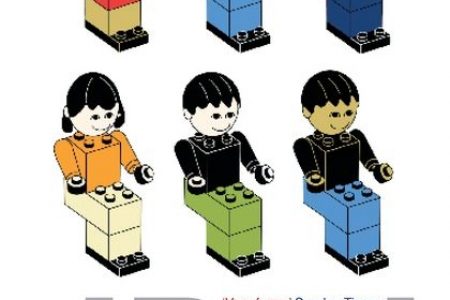I first saw Jack Dee live in the small bar at the top of the Union Building of the University of Bristol over 20 years ago, with a small handful of other people. The few of us who were there enjoyed his wonderfully deadpan style, so it was no surprise when he got his own television programme on Channel 4 some years later. Seeing him before he became famous caused a connection with me that has never been broken – I was impressed by my stoic reaction when I saw him out cycling with his kids on a nearby common (although he did have that expression on his face that said, ‘Please don’t recognise me, I’m with my family’). Therefore, I was interested to read about the formative years of his life.
This is not an autobiography in the strictest sense: Dee doesn’t tell the story of his life, but instead tells anecdotes that happened at various points in his past (if you can see the difference). He mixes amusing rants with modern life, which he tentatively links with whatever topic he’s about to relate, with the moments from his life. This is very similar to Frank Skinner’s autobiography, but Skinner is a better writer of prose and he deliberately split the chapters up to keep them separate – Dee flits about with no real road map, only really getting into talking about his life in the second half of the book. Also, he doesn’t talk about the times on the road as a comedian working up to having his own show – he stops at the moment when an agent offers to be his agent, which would mean he stops doing the open mic slots and would start the university gigs that would mean he became a paid comedian.
Another aspect that is odd is that Dee almost tells everything but not quite. He is very honest about being a rather useless student at school, ending up being a waiter in various London restaurants, and how he became an alcoholic almost accidentally (but mostly because he was depressed because he wasn’t doing what made him happy). However, he doesn’t talk about his recovery with AA, admittedly for the genuine reason that people are not supposed to talk about it because the second ‘A’ stands for ‘Anonymous’ and that is an important part of the process (he disagrees with those people who have outed themselves publicly; he was outed by other people, but doesn’t want to talk about it). He talks about being depressed in a way to suggest that there will be more specifics but it’s more a general thing that is seemingly cured by becoming a comedian in a vague sense.
The book is funny in that Jack Dee way – his sardonic rants about life, his bleak view of the world, and his absurd perspective – and you can tell that it is Dee who wrote the book because it sounds so like his voice. But you are left unsatisfied, even though the narrative has a resolution, because you can’t help but feel there was so much more he could have talked about if he hadn’t been distracted with asides about modern life.




